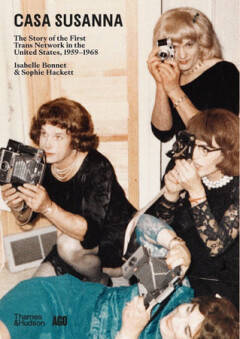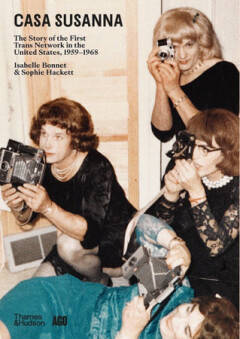
- Retrait gratuit dans votre magasin Club
- 7.000.000 titres dans notre catalogue
- Payer en toute sécurité
- Toujours un magasin près de chez vous
- Retrait gratuit dans votre magasin Club
- 7.000.000 titres dans notre catalogue
- Payer en toute sécurité
- Toujours un magasin près de chez vous
Casa Susanna
The Story of the First Trans Network in the United States, 1959-1968
Isabelle Bonnet, Sophie HackettDescription
In the 1950s and '60s, an underground network of transgender women, gender nonconforming people, and men who dressed as women found refuge at a modest house in the Catskills, New York. Known as Casa Susanna, the house provided a safe place to express their true selves and live for a few days as they had always dreamed--dressed as and living as women without fear of being incarcerated or institutionalized for their self-expression.
Casa Susanna opens up that now-lost world. The photographs--mostly discovered by chance in a New York flea market in 2004--chronicle the experiences of these women in states of relaxation, experimentation, connection, and joy. All of this was made possible by Susanna Valenti who--on her own journey toward womanhood--created Casa Susanna, a protected space where others could do the same. Supplementing the images, excerpts from the magazine Transvestia record a different kind of space where those who had been outcast by a rigidly binary society could connect.
The people who came to Casa Susanna found a space where they could explore and celebrate their own and each other's femininity, as they could not elsewhere. Their creations are also a reminder that there were, and still are, many ways to explore the boundaries of gender.
Spécifications
Parties prenantes
- Auteur(s) :
- Editeur:
Contenu
- Nombre de pages :
- 480
- Langue:
- Anglais
Caractéristiques
- EAN:
- 9780500297902
- Date de parution :
- 28-05-24
- Format:
- Livre relié
- Format numérique:
- Genaaid
- Dimensions :
- 182 mm x 255 mm
- Poids :
- 952 g







